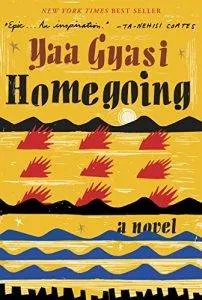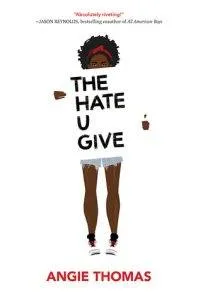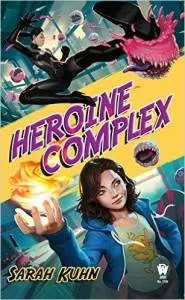
Reading Fatigue and the Marginalized Reader
This content contains affiliate links. When you buy through these links, we may earn an affiliate commission.
Books are powerful in their ability to provide inspiration, education, escapism– but also harm. Power is a double-edged sword, and if it can be used to lift up, it can also be used to tear down. After the election, many marginalized Americans are afraid of how power will be used, and has been used to legitimize violence against them for who they are. More than ever, books are an important way to combat this in the public consciousness, and we need give marginalized authors the ability to tell their own stories.
This is where the conversation happens.
Before the election, I wanted to write about the emotional fatigue of marginalized people when it came to reading books about their struggle. It’s a new development for me as a reader, and I’ve been dealing with it for the last year and a half; the fatigue itself, and the guilt for feeling it. I became aware of it when I saw a lot of buzz surrounding Yaa Gyasi’s Homegoing.
 I was excited that Gyasi was getting a lot of love for her book, and went to read the synopsis. The book was about two half-sisters; one sister is sold into slavery while the other is married off to a slave owner. It follows their descendants, and explores how history shapes the present. It’s an important book. Not long ago, Americans were shocked by Michelle Obama’s claim that the White House was built by slaves. As a Canadian, I won’t pretend that Canada has been great at remembering its slavery, and civil rights past.
But as a black woman, I was tired. I started to reach my emotional limit with these slavery narratives in books, film, and television. Gyasi’s novel could be different, of course it could be different, but real life is using me up; on social media, the news, and now my books. It’s how I felt when I saw the cover reveal of Angie Thomas’ The Hate U Give; a book I’ve been excited for since 13 publishing houses competed for the rights to publish it. But a lot has happened since February 2016 with more African-Americans who were killed by police, and a Somali man who died after encountering officers in Ottawa. The violence against black bodies makes it harder for me to read The Hate U Give anytime soon, even though it’s an important work right now, and in this moment.
I was excited that Gyasi was getting a lot of love for her book, and went to read the synopsis. The book was about two half-sisters; one sister is sold into slavery while the other is married off to a slave owner. It follows their descendants, and explores how history shapes the present. It’s an important book. Not long ago, Americans were shocked by Michelle Obama’s claim that the White House was built by slaves. As a Canadian, I won’t pretend that Canada has been great at remembering its slavery, and civil rights past.
But as a black woman, I was tired. I started to reach my emotional limit with these slavery narratives in books, film, and television. Gyasi’s novel could be different, of course it could be different, but real life is using me up; on social media, the news, and now my books. It’s how I felt when I saw the cover reveal of Angie Thomas’ The Hate U Give; a book I’ve been excited for since 13 publishing houses competed for the rights to publish it. But a lot has happened since February 2016 with more African-Americans who were killed by police, and a Somali man who died after encountering officers in Ottawa. The violence against black bodies makes it harder for me to read The Hate U Give anytime soon, even though it’s an important work right now, and in this moment.
 This is where the guilt comes in.
As an advocate for more diverse voices in the book industry, this fatigue has been agonizing. I was so disappointed in myself, which seems ridiculous, but a feeling I had regardless. So I wanted to say this to those who may be going through the same thing: it’s okay. It’s okay to be tired. You can fight for yourself to be represented in the stories we tell, and also take care of yourself.
We need books like Between the World and Me, and I never want those stories to stop being written. They serve an important purpose. They’re not just for us to see ourselves in but to illuminate experiences for those who don’t seem to understand it. Books are a way to bridge the gap of understanding between the oppressed, and the privileged.
This is where the guilt comes in.
As an advocate for more diverse voices in the book industry, this fatigue has been agonizing. I was so disappointed in myself, which seems ridiculous, but a feeling I had regardless. So I wanted to say this to those who may be going through the same thing: it’s okay. It’s okay to be tired. You can fight for yourself to be represented in the stories we tell, and also take care of yourself.
We need books like Between the World and Me, and I never want those stories to stop being written. They serve an important purpose. They’re not just for us to see ourselves in but to illuminate experiences for those who don’t seem to understand it. Books are a way to bridge the gap of understanding between the oppressed, and the privileged.
 Light reads featuring the underrepresented are so valuable right now. They help us escape into the pages, and remind us that we are not just our struggles. We are not just resilient but also funny, kind, passionate, and dreamers. So if you’re feeling fatigued, pick one up. Books like Homegoing, and The Hate U Give will still be there when you’re ready.
Light reads featuring the underrepresented are so valuable right now. They help us escape into the pages, and remind us that we are not just our struggles. We are not just resilient but also funny, kind, passionate, and dreamers. So if you’re feeling fatigued, pick one up. Books like Homegoing, and The Hate U Give will still be there when you’re ready.
 I was excited that Gyasi was getting a lot of love for her book, and went to read the synopsis. The book was about two half-sisters; one sister is sold into slavery while the other is married off to a slave owner. It follows their descendants, and explores how history shapes the present. It’s an important book. Not long ago, Americans were shocked by Michelle Obama’s claim that the White House was built by slaves. As a Canadian, I won’t pretend that Canada has been great at remembering its slavery, and civil rights past.
But as a black woman, I was tired. I started to reach my emotional limit with these slavery narratives in books, film, and television. Gyasi’s novel could be different, of course it could be different, but real life is using me up; on social media, the news, and now my books. It’s how I felt when I saw the cover reveal of Angie Thomas’ The Hate U Give; a book I’ve been excited for since 13 publishing houses competed for the rights to publish it. But a lot has happened since February 2016 with more African-Americans who were killed by police, and a Somali man who died after encountering officers in Ottawa. The violence against black bodies makes it harder for me to read The Hate U Give anytime soon, even though it’s an important work right now, and in this moment.
I was excited that Gyasi was getting a lot of love for her book, and went to read the synopsis. The book was about two half-sisters; one sister is sold into slavery while the other is married off to a slave owner. It follows their descendants, and explores how history shapes the present. It’s an important book. Not long ago, Americans were shocked by Michelle Obama’s claim that the White House was built by slaves. As a Canadian, I won’t pretend that Canada has been great at remembering its slavery, and civil rights past.
But as a black woman, I was tired. I started to reach my emotional limit with these slavery narratives in books, film, and television. Gyasi’s novel could be different, of course it could be different, but real life is using me up; on social media, the news, and now my books. It’s how I felt when I saw the cover reveal of Angie Thomas’ The Hate U Give; a book I’ve been excited for since 13 publishing houses competed for the rights to publish it. But a lot has happened since February 2016 with more African-Americans who were killed by police, and a Somali man who died after encountering officers in Ottawa. The violence against black bodies makes it harder for me to read The Hate U Give anytime soon, even though it’s an important work right now, and in this moment.
 This is where the guilt comes in.
As an advocate for more diverse voices in the book industry, this fatigue has been agonizing. I was so disappointed in myself, which seems ridiculous, but a feeling I had regardless. So I wanted to say this to those who may be going through the same thing: it’s okay. It’s okay to be tired. You can fight for yourself to be represented in the stories we tell, and also take care of yourself.
We need books like Between the World and Me, and I never want those stories to stop being written. They serve an important purpose. They’re not just for us to see ourselves in but to illuminate experiences for those who don’t seem to understand it. Books are a way to bridge the gap of understanding between the oppressed, and the privileged.
This is where the guilt comes in.
As an advocate for more diverse voices in the book industry, this fatigue has been agonizing. I was so disappointed in myself, which seems ridiculous, but a feeling I had regardless. So I wanted to say this to those who may be going through the same thing: it’s okay. It’s okay to be tired. You can fight for yourself to be represented in the stories we tell, and also take care of yourself.
We need books like Between the World and Me, and I never want those stories to stop being written. They serve an important purpose. They’re not just for us to see ourselves in but to illuminate experiences for those who don’t seem to understand it. Books are a way to bridge the gap of understanding between the oppressed, and the privileged.
 Light reads featuring the underrepresented are so valuable right now. They help us escape into the pages, and remind us that we are not just our struggles. We are not just resilient but also funny, kind, passionate, and dreamers. So if you’re feeling fatigued, pick one up. Books like Homegoing, and The Hate U Give will still be there when you’re ready.
Light reads featuring the underrepresented are so valuable right now. They help us escape into the pages, and remind us that we are not just our struggles. We are not just resilient but also funny, kind, passionate, and dreamers. So if you’re feeling fatigued, pick one up. Books like Homegoing, and The Hate U Give will still be there when you’re ready.





